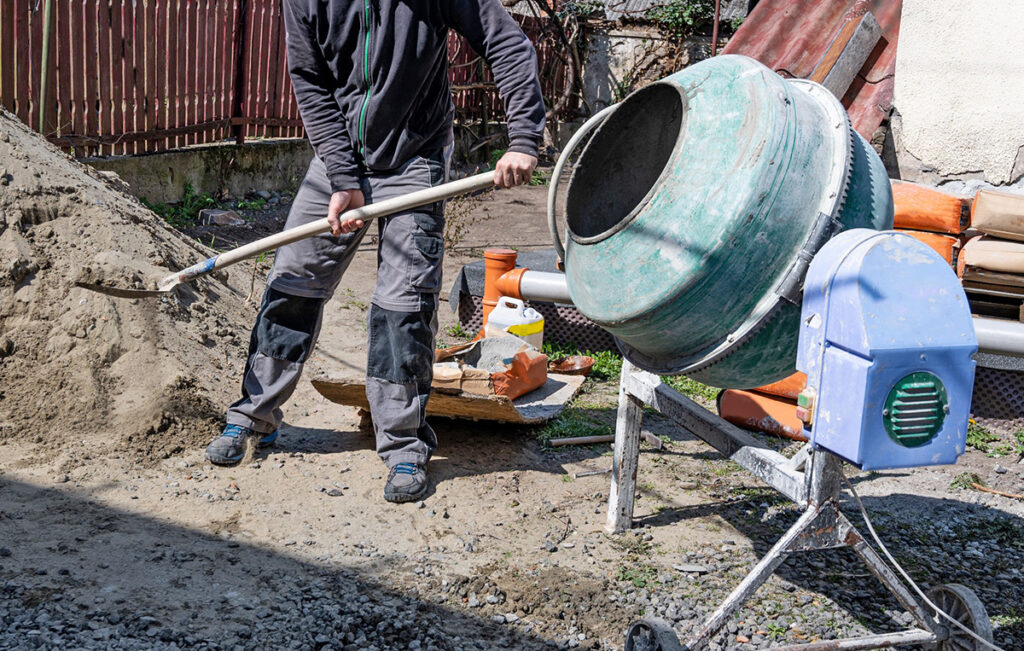House expansion is one of the most exciting parts of having your own house. Adding patios and gazebos in a backyard creates a new space where the family can bond. However, structures in your house may need to be in line with the rules implemented in your state. And that poses the question, do you need a permit to pour concrete in your backyard?
You may need a permit or not and it depends on the policy in your state. The decision depends on the type and the size of the project. But if you plan to sell your house in the future, securing a permit can save you from headaches.
Do you want to know more about the importance of securing a permit? Check the frequently asked questions below and I hope it answers all your queries.
Do I Need A Permit To Pour Concrete In My Backyard?
You are required to get a permit if you will alter your floor plan. But if you are going to pour the concrete to hold up your fence post, a permit is not required. That is also true for DIY planters made from concrete.
As long as you are not changing your floor plan, you do not need to worry about the permit. But keep in mind that the regulation for pouring concrete varies in every state.
When applying for a permit, local authorities may require you to submit several documents. You may need to submit a detailed drawing of the project, material list, site plan, contract copy, and permit application form. Your local authority may ask you for other documents so it is better to call them for more information.
Patio, Fence, And Toolsheds
For patio, fence, and toolsheds, what you want to do is to know the height or size of the building or the wall. Your local authorities designate a guideline on the dimension of buildings and walls, which dictates if you must secure a permit or not.
To be exempted from a permit, your patio must be less than 30 inches above grade. For fence or retaining wall, you may be exempted if the fence measures 2.5 feet to six feet. Tool sheds and other buildings that require a concrete slab foundation, may not need a permit. So if you want a gazebo, playhouse, or even a greenhouse, you do not need to secure a permit. But again, check with your local authorities.
Driveways
When pouring a concrete driveway, the first thing you need to do is to secure a permit. It is through this process you will know if your plan is feasible based on the state’s guidelines. The local authorities will tell if you can use the public-access section of the driveway. If you plan to change the curbs or sidewalks, the local authorities can guide you as well.
What Happens If The Concrete Is Poured Without A Permit?
Pouring concrete without a permit is called illegal construction. You can receive a stop-work order or you may pay for a fine. Some homeowners do not secure permits because they want to avoid paying fees. But if the local authorities learn about it, they get penalized and they cannot avoid paying for the fine.
In addition, if you plan to sell your house, the non permitted construction will not be included in the square footage. It means that when it is posted for listing, the dimension of your house in the original floor plan will stay the same. Even though you include the non permitted construction, i.e. patio, in the listing, your potential buyer may think that you have a small lot. On the other hand, if they figured out that you have a non-permitted patio, they may think twice and may not buy your property.
Home Insurance
When it comes to home insurance, renovations without a permit will not be covered by the policy. It can also pose a potential problem and danger to your house. No permit means that the constructed building or fence does not get the necessary inspection it needs to pass the standard. Even though you will save money by not paying the permit fee, the possible disaster may cost you a lot.
In some cases, you may need to add lighting provisions to the area where you pour the concrete. If you do not apply for a permit, you may overlook the electrical requirement by the local authorities. I hope it will not happen but non-compliance may end up in faulty wirings. When it happens, you may not be eligible for home insurance.
Is It Really Necessary To Have Building Permits If They Are Small Enough?
When in doubt, ask the local authority. The word small is relative and in this kind of project, dimension is important. Every state has its specification and you should ask the authorities about it. If they tell you to apply for the permit, you must get it.
Because of this matter, I would also like to discuss hiring a contractor. Even though you are building small concrete projects, you may need an expert to help you build them. However, there are fly-by-night contractors that you may encounter. Most of the time, these contractors are fine to do the job without building permits. If you want to save money by skipping the permit, you are likely to be a good client for them.
Choosing the right contractor is also necessary as it will guide you to get the necessary permissions you need. Because they are experts in the field, they will also use materials that comply with the requirements stated on the permit.
Securing a permit is something you need to consider if you plan to pour concrete in your backyard. It can be costly but it can save you a lot of money in the future. You do not even have to worry about the quality of the construction. Getting a permit guarantees that you get the best output.

